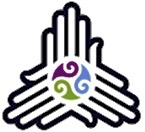Why TESL Certification is Essential for Teachers
- USA Student Advisory
- Aug 26, 2025
- 4 min read
Updated: Oct 24, 2025
Teaching English as a Second Language (ESL) is a rewarding career that opens doors to diverse cultures and global opportunities. However, to be effective and credible in this field, obtaining proper credentials is crucial. One of the most recognized qualifications is TESL certification. This certification equips teachers with the skills and knowledge necessary to help non-native speakers master English. In this article, we will explore why TESL certification is essential for teachers, its benefits, and how it compares to other certifications.
Understanding the Importance of TESL Certification
TESL certification is more than just a credential; it is a foundation for quality teaching. It provides educators with a comprehensive understanding of language acquisition, teaching methodologies, and classroom management tailored specifically for ESL learners. Without this certification, teachers may lack the specialized training needed to address the unique challenges faced by English language learners.
For example, TESL-certified teachers learn how to design lesson plans that cater to different proficiency levels, incorporate cultural sensitivity, and use assessment tools effectively. This training ensures that students receive instruction that is both engaging and effective, leading to better learning outcomes.
Moreover, many schools and language institutions require TESL certification as a prerequisite for employment. This requirement ensures that teachers meet a standard of professionalism and competence, which ultimately benefits the students.

Key Benefits of TESL Certification for Educators
Obtaining TESL certification offers numerous advantages that enhance a teacher’s career and teaching effectiveness. Here are some of the key benefits:
Improved Teaching Skills: TESL courses cover essential topics such as phonetics, grammar, and language acquisition theories. This knowledge helps teachers deliver lessons more clearly and confidently.
Increased Job Opportunities: Many educational institutions worldwide prefer or require TESL-certified teachers. This certification opens doors to teaching positions in schools, language centers, and online platforms.
Higher Salary Potential: Certified teachers often command better salaries compared to non-certified counterparts due to their specialized skills.
Professional Credibility: Holding a TESL certification signals to employers and students that the teacher is committed to professional development and quality education.
Cultural Competence: TESL training includes understanding cultural differences and adapting teaching methods accordingly, which is vital in diverse classrooms.
For instance, a TESL-certified teacher working in a multicultural urban school can better address the varied linguistic backgrounds of students, creating a more inclusive learning environment.

Which One is Better, TESOL or TEFL?
When considering a career in teaching English abroad or online, many educators wonder whether TESOL or TEFL certification is better. Both certifications prepare teachers to instruct English learners, but they have distinct differences.
TESOL (Teaching English to Speakers of Other Languages): This certification is often broader and can apply to teaching English in English-speaking countries or abroad. TESOL programs typically include more theory and practical teaching experience.
TEFL (Teaching English as a Foreign Language): TEFL is usually focused on teaching English in countries where English is not the primary language. It tends to be more practical and shorter in duration.
Choosing between TESOL and TEFL depends on your career goals and where you plan to teach. If you want a comprehensive program with a mix of theory and practice, TESOL might be the better choice. If you prefer a shorter, practical course aimed at teaching abroad, TEFL could be more suitable.
However, TESL certification often overlaps with TESOL and TEFL, focusing specifically on teaching English to learners in English-speaking countries. Understanding these nuances helps teachers select the right certification for their needs.

How TESL Certification Enhances Classroom Effectiveness
TESL certification equips teachers with strategies that directly improve classroom effectiveness. For example, certified teachers learn how to:
Use Communicative Language Teaching (CLT): This approach emphasizes interaction and real-life communication, making lessons more engaging.
Incorporate Technology: TESL training often includes using digital tools to enhance learning, such as language apps and online resources.
Adapt to Different Learning Styles: Teachers learn to recognize and accommodate visual, auditory, and kinesthetic learners.
Manage Multilevel Classes: TESL certification provides techniques for handling classrooms with students at varying proficiency levels.
Assess Student Progress: Teachers are trained to use formative and summative assessments to monitor and support student growth.
For example, a TESL-certified teacher might use role-playing activities to encourage speaking practice or integrate multimedia presentations to cater to visual learners. These methods make learning more dynamic and effective.
Steps to Obtain TESL Certification
If you are considering becoming a TESL-certified teacher, here are the typical steps involved:
Research Accredited Programs: Look for TESL certification courses that are recognized by reputable organizations.
Meet Prerequisites: Most programs require a high school diploma or equivalent; some may require a bachelor’s degree.
Complete Coursework: This usually involves 100-150 hours of training covering language teaching theory, lesson planning, and practical teaching.
Gain Practical Experience: Many programs include a practicum or teaching practice component.
Pass Assessments: You may need to complete exams or submit teaching demonstrations.
Receive Certification: Upon successful completion, you will be awarded your TESL certificate.
By following these steps, you can ensure that you are well-prepared to teach English effectively and confidently.
Expanding Career Opportunities with TESL Certification
TESL certification not only improves teaching skills but also broadens career prospects. Certified teachers can work in various settings, including:
Public and private schools
Language institutes
Community centers
Online teaching platforms
Corporate training programs
Additionally, TESL certification can be a stepping stone to advanced qualifications, such as a Master’s degree in TESOL or Applied Linguistics, further enhancing career growth.
For example, a TESL-certified teacher might start teaching in a local language school and later transition to an international school or online tutoring, thanks to the credibility and skills gained through certification.
By investing in TESL certification, teachers equip themselves with the tools needed to succeed in diverse teaching environments. This certification not only validates their expertise but also enriches their teaching practice, ultimately benefiting the learners they serve. For more detailed information on TESL certification, visit TESL Certification FAQ.







Comments